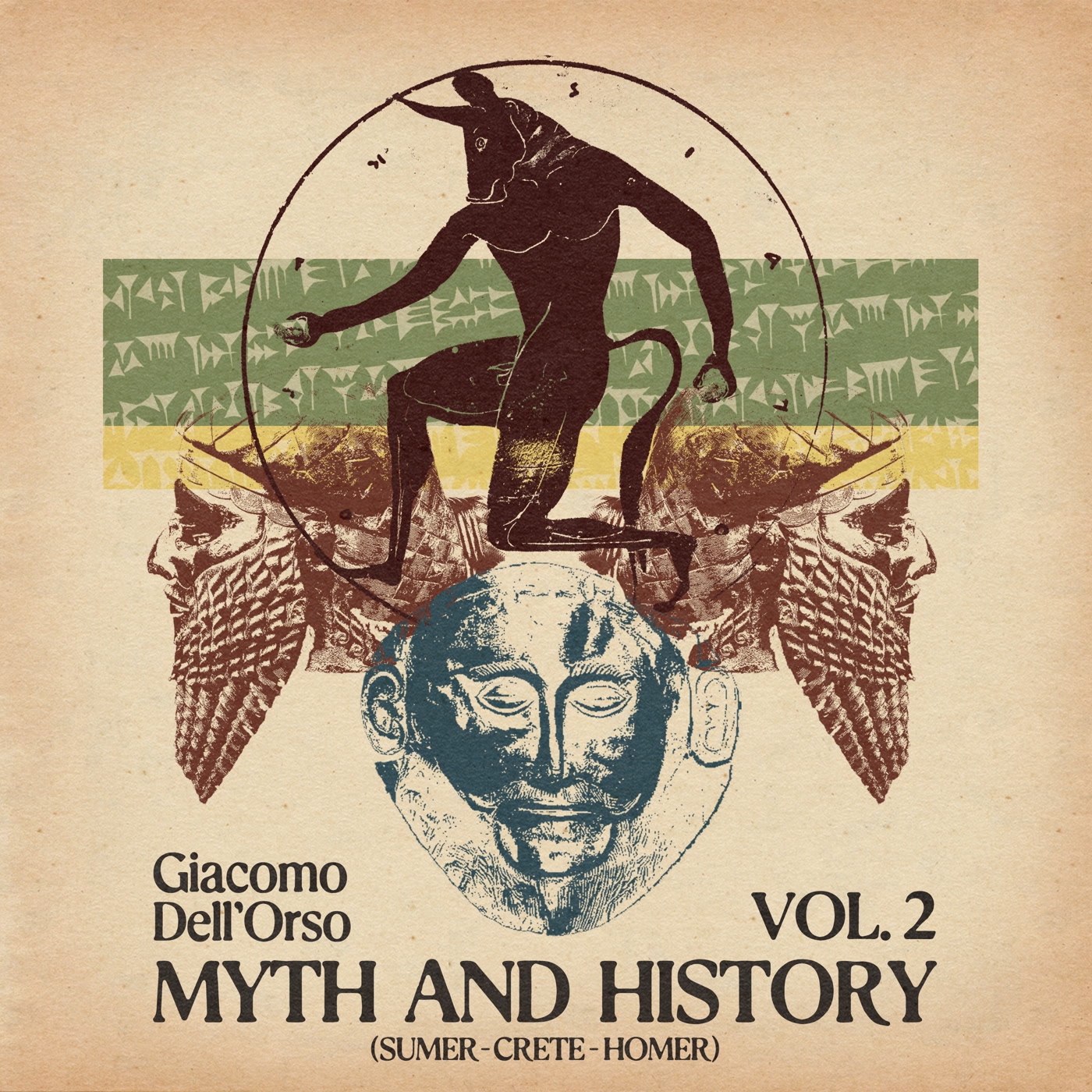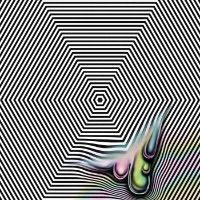- Digital
Giacomo Dell'Orso
Myth and History, Vol. 2 (Sumer - Crete - Homer)
Four Flies
- Cat No: SPE95
- Release: 2024-01-05
- updated:
Track List
-
1. Giacomo Dell'Orso - Marduk e Tiamat
02:18 -
2. Giacomo Dell'Orso - Mura di Uruk
02:30 -
3. Giacomo Dell'Orso - Enuma Elish
03:06 -
4. Giacomo Dell'Orso - Morte di Enkidu
02:44 -
5. Giacomo Dell'Orso - Ikkibu
02:47 -
6. Giacomo Dell'Orso - Minotauro
02:40 -
7. Giacomo Dell'Orso - Icaro
02:35 -
8. Giacomo Dell'Orso - Alla Più Bella
03:43 -
9. Giacomo Dell'Orso - Lamento di Crise
02:49 -
10. Giacomo Dell'Orso - Olimpia
02:50 -
11. Giacomo Dell'Orso - Andromaca e Astianatte
02:23
0bit/44.1khz [wav/flac/aiff/alac/mp3]
With Volume 2 of "Myth & History," Italian composer Giacomo Dell'Orso continues to delve into ancient history and mythology, this time crafting a small collection inspired by Homeric epics and the rich civilizations of Sumer and Crete.
Across eleven tracks imbued with mystical and ethereal atmospheres, Dell'Orso employs an almost philological approach to instrumentation, weaving a musical narrative that seeks to transport the listener back to the stories and settings of that ancient past.
Like its predecessor, this second volume, recorded alongside the first and third in a single session in Rome, evocatively resurrects the soundscape of ages past, breathing life into it through the expressive interplay of percussion, psalm-like vocals (featuring the exquisite soprano Edda Dell'Orso, wife of the composer), gongs, flutes, flugelhorns (masterfully played by Cicci Santucci), argilophones, laminophones, and mechanical zithers (the latter three played by Dell'Orso himself).
As the notes cascade through time, Dell'Orso's musical tapestry unfolds, beckoning the listener to step into the echoes of bygone eras. Each composition, be it solemn- and ritualistic-sounding like "Mura di Uruk" and "Ikkibu," or more expansive and abstract like "Marduk e Tiamat" and "Andromaca e Astianatte," serves as a magic key to the door of antiquity.
Across eleven tracks imbued with mystical and ethereal atmospheres, Dell'Orso employs an almost philological approach to instrumentation, weaving a musical narrative that seeks to transport the listener back to the stories and settings of that ancient past.
Like its predecessor, this second volume, recorded alongside the first and third in a single session in Rome, evocatively resurrects the soundscape of ages past, breathing life into it through the expressive interplay of percussion, psalm-like vocals (featuring the exquisite soprano Edda Dell'Orso, wife of the composer), gongs, flutes, flugelhorns (masterfully played by Cicci Santucci), argilophones, laminophones, and mechanical zithers (the latter three played by Dell'Orso himself).
As the notes cascade through time, Dell'Orso's musical tapestry unfolds, beckoning the listener to step into the echoes of bygone eras. Each composition, be it solemn- and ritualistic-sounding like "Mura di Uruk" and "Ikkibu," or more expansive and abstract like "Marduk e Tiamat" and "Andromaca e Astianatte," serves as a magic key to the door of antiquity.



